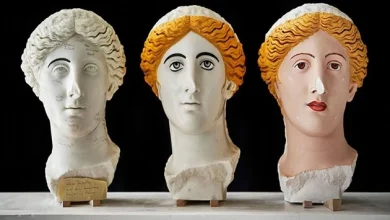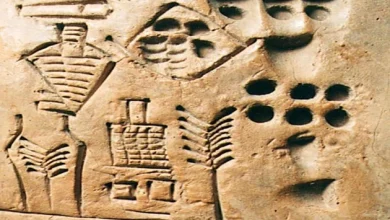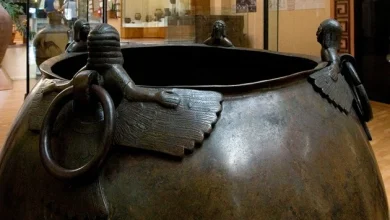Bible stories about forgiveness and reconciliation

“When you stand praying, if you have anything against anyone, forgive, that your Father in heaven may also forgive your trespasses” (Mark 11:25).
The Bible is a long story in which God, the main character, demonstrates his unconditional love for humanity, compassion, faithfulness, grace, and forgiveness! From the book of Genesis, He promises the coming of a Redeemer who would save the world and forgive its sins. Many Bible stories also remind us about forgiveness and reconciliations.
1. Jacob and Esau (Genesis 25, 27, 32, 33)
Jacob and Esau, although twins, were very different from each other. Esau enjoyed outdoor activities, such as tending sheep and hunting. Jacob preferred to stay home and learn from his mother. As he returned from hunting, Esau was very tired and hungry. Jacob was preparing lentils, which Esau asked for. Jacob then bargained with Esau: he would feed him if he renounced his inheritance as the eldest son. Esau thus gave up his precious birthright for a simple dish of lentils.
When Isaac grew old, the time came for him to bless his first son. Rebecca then helped Jacob obtain the blessing. When Esau realized he had been deceived, he became angry and decided that one day he would kill his brother. As Isaac and Rebecca wanted to protect Jacob, they ordered him to flee. Jacob listened to his parents and ran away.
It took him many years to return to his city. When he did, he heard that his brother Esau was looking for him. Jacob was scared and worried that his brother would take over his inheritance. But when they met again, Esau ran to Jacob and embraced him, full of forgiveness and pity. He was so happy to see his brother again that he was surprised to learn that he thought he still resented him (Genesis 33).
2. Joseph (Genesis 37)
Joseph was the eleventh son of Jacob. His father’s affection for him and the story of dreams which seemed to promise him a glorious future aroused the jealousy of his brothers. They decided to sell him as a slave, telling their father Jacob that a wild animal had killed him.
Joseph was taken to Egypt and sold to Potiphar, steward of the royal household. Following a lie from his wife, Joseph ends up in prison. He made a meeting there, finally allowing him to leave there and become close to the Pharaoh. The prince showered him with honors and entrusted him with the administration of all of Egypt.
A great famine, however, struck the land of Joseph’s family, which caused his brothers to travel to Egypt to seek provisions. They had no idea that one of the kingdom’s most powerful men was their brother Joseph. When they learned of it, they were shocked to see him alive. They even feared for years that he was seeking revenge on them. Nevertheless, this was not the case. Joseph was happy to find his brothers and his father, Jacob, who all lived together in Egypt.
When Jacob died, Joseph’s brothers began to fear for their lives again (Genesis 50:15). But nothing happened, and Joseph was even hurt to learn that his brothers still feared him (Genesis 50:17). This beautiful story of forgiveness culminates in these words of Joseph to his brothers:
“Joseph said unto them, Be not afraid; because am I in place of God? You had meditated to do me harm: God changed it for good, to accomplish what is happening today, to save the lives of many people. Be, therefore, without fear; I will support you and your children. And he comforted them, speaking to their hearts.” (Genesis 50:19-21)
3. David and Mephibosheth (2 Samuel 9)
Although King Saul tried to kill David in the book of 1 Samuel, the latter did not seek to return evil with evil but bestowed forgiveness on the house of his persecutor. After he became king and Saul died, David sought to bless everyone in Saul’s household so that he could show his love and friendship for Jonathan, Saul’s son. Only one person remained: Mephibosheth.
David showed his kindness and generosity to this man by returning the land belonging to former King Saul to him. Finally, he made him a place of honor at his table so that he was considered a full member of his family.
4. The prodigal son (Luke 15)
In Luke 15, Jesus teaches us a beautiful story of redemption, love, and forgiveness in the parable of the prodigal son. A man had two sons. The eldest was obedient and happy to live with his father. The youngest was in a hurry: to leave his father’s house to live his life as he saw fit. When the time was right, he went to his father to ask for his share of the inheritance. Once the money is received, he flees to a distant land.
Jesus explains that the young man wasted all his money on a frugal life. Shortly after, all of the youngest’s savings were squandered. He found himself without money, work, and friends. The young man decided after many adventures to return to his father’s house: he expected nothing from him except that he even took him back as a servant! He didn’t know that his father was eagerly awaiting his return. As soon as he saw his young boy, he ran to him and welcomed him with open arms. He forgave and did not accept him as a servant but as a son!
5. The adulteress (John 8)
Jesus forgave a woman caught in the act of adultery. This woman was brought before the Lord by the city’s spiritual leaders. They wanted to see if Jesus, claiming to be the Son of God, would obey the Law and have the woman stoned.
Instead, Jesus said the very famous phrase, “Let him who has never sinned cast the first stone.” Confused, the accusers dropped their rocks and walked away. Jesus lifted the woman and asked her if there was anyone left to accuse her of her sin. She replied, “no.” He said, “Neither do I condemn you: go and sin no more.”




